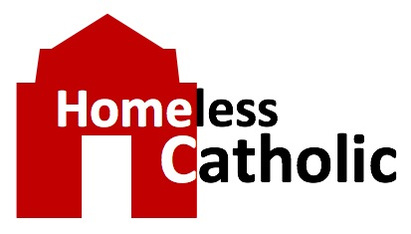Genetics and our box of Legos
Geneticists are regularly telling us that this or that are part of our genetic makeup. Our eyes are blue, our hair is brown, our height is in the 98th percentile and other personal statistical information. Similarly, sociologists from a variety of fields under that academic umbrella remind us that parental and family practices, home environment, school environment, political culture, economic circumstances, media, etc., etc., etc. — all have a hand in forming the person we are.
Then, of course, there are the things that happen to us. Some the work of nature. Some the work of men.
Image by M. H.
Reflection - Lego
By Steve Hall
https://bible.usccb.org/bible/readings/102222.cfm
Ephesians 4:7-16
Luke 13:1-9
The dictionary defines a reflection as a thought, idea, or opinion formed as a result of meditation. Such a practice can have disparate results as miscellaneous elements vie for the prime position. If such happens here, the reader will, hopefully, be able to sort it out.
There is a portion of Paul’s teaching in this letter to the Corinthians which may or may not be the first time he has broached the subject, but it is certainly not the only time or the last. The verses, of course, concern the Body of Christ.
“Grace was given to each of us
according to the measure of Christ’s gift.”
“And he gave some as Apostles, others as prophets,
others as evangelists, others as pastors and teachers,
to equip the holy ones for the work of ministry,
for building up the Body of Christ,
until we all attain to the unity of faith. . . . “
Hearing these lines immediately turned this reflection toward another of Paul’s teachings, one that is found in I Corinthians.
“What have you that you did not receive? If then you received it, why do you boast as if it were not a gift?”
(I Corinthians 4:7)
That, in turn, led to pondering Paul’s question.
Geneticists are regularly telling us that this or that are part of our genetic makeup. Our eyes are blue, our hair is brown, our height is in the 98th percentile and other personal statistical information. There are even those geneticists who explore the possibility that things like criminal behavior are part of one’s genetic configuration. Similarly, sociologists from a variety of fields under that academic umbrella remind us that parental and family practices, home environment, school environment, political culture, economic circumstances, media, etc., etc., etc. — all have a hand in forming the person we are. Then, of course, there are the things that happen to us. Some the work of nature. Some the work of men. Some are supportive. Some make us discouraged. Some build. Some destroy.
With all these things coming into play we might begin to wonder if our life is our own, or is it the victim/plaything/product of circumstance/happenstance/concomitance. But then, none of these are me. None are my life. The I that I am, the I that I become is determined by how I deal with what comprises my particular package. We all know that. My grandson’s box of miscellaneous Lego pieces comes to mind. The box may be large or small. It may contain pieces that are repetitively similar or pieces of wide diversity. It may contain only the mundane or it may contain the exotic. We build what we have the pieces for.
Where, then, does Paul’s teaching come in to play? In answer another text from Paul comes to mind.
“And to keep me from being too elated by the abundance of revelations, a thorn was given me in the flesh, a messenger of Satan, to harass me, to keep me from being too elated. Three times I begged the Lord about this, that it should leave me; but he said to me, ‘My grace is sufficient for you, for my power is made perfect in weakness.’”
(II Corinthians 12:7-9)
God knows everything in our personal Lego box. And if we can imagine bad or harmful Legos he knows them too. For each of these His involvement is the same: ‘My grace is sufficient for you.’ Whether we see our Lego collection as the result of chance or divine plan, we are never devoid of what we need to recognize and deal with those parts which would prove to be ‘thorns’ in our structure.
Likewise there are those ‘good’ Lego pieces — the ones that lock firmly together, the ones that allow for building solid foundational character, enabling us to rejoice and celebrate the potential that can be actualized. These are the ones referred to in the latter part of the text —
“living the truth in love,
we should grow in every way into him who is the head, Christ,
from whom the whole Body,
joined and held together by every supporting ligament,
with the proper functioning of each part,
brings about the Body’s growth and builds itself up in love."
It would seem that we may underestimate that initial teaching from Paul, the one that begins
“Grace was given to each of us
according to the measure of Christ’s gift.
And he gave some as Apostles, others as prophets . . . . “
We limit our understanding if we think of Apostles, prophets, teachers, etc. as jobs. These are not jobs but modes through which we celebrate the life to which we are called. These are what can be because of the bits and chips in our Lego box. We may mistakenly think of these functions as jobs. In fact they are the manner in which we evidence our salvation and rejoice in what we have become.
Is it time to fully discover what’s hidden in our Lego box?

